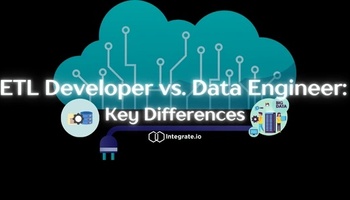If you have a company, you get data - like contact information, transaction history, and marketing information - coming in from various sources all day long. An increasingly central and important data source is social media.
While most recognize that a strong social media strategy is important for any business, less than half of companies integrate their social media data with the rest of their sources or even know how to analyze the feedback that they get from these efforts - and even fewer can put it in the bigger context of their business.
This is a big problem, and here’s why.
The Social Media Giant
With 68% of all U.S. adults on Facebook and more than 56% of online adults on more than one social media platform, it’s safe to say that most people are connected to social media in some way. That means that, if you’re looking for a wide audience to hear your message and learn about your business, these platforms are the place to be.
That’s why so many companies work hard to strengthen their social presence and get their messages out there. Today, over 83% of marketers actively pursue social media marketing initiatives and 64% of marketers use social media for six hours or more. Why? They understand that social media is a central part of successful internet marketing, so they’re posting, tweeting, sharing, and doing everything that they can to make sure that their company doesn’t fall behind.
However, being a part of the conversation is just the first part. There’s a lot to learn from what happens after you post, and this information can be extremely beneficial for you and your business.
Social Media Data - What You Can Learn
Nothing can give you a more accurate, up-to-the-minute sense of exactly how your customers are interacting and reacting with your brand than social media; it gives you real-time insight into key information like what your audience is thinking, how your demographics are shifting, and what new customers may be interested in.
Specifically, social media can help you gain key metrics and insights like:
- Market research: identify and understand your target market and key demographics
- Consumer insights: find key conversations, insights, or directions
- User experience: understand the good, the bad, and the ugly of how your users are interacting with your brand - and avoid a crisis or low ROI
- Audience engagement: understand what topics, terms, emotions, etc., increase engagement, interest, and brand loyalty
- Evaluation: discover how effective your current campaigns and efforts really are
So What’s The Hold-Up?
For most people, none of this is necessarily new information. That said, while 92% of marketers say that social media efforts are important to their business, only 45% of marketers think that their Facebook efforts are effective and only 42% even think that they can actually measure the effectiveness of their social media activities.
That’s the problem. People understand the importance of social media and they know what to do, but they don’t know:
- If their efforts are working
- How to measure their metrics
- How to fit their insights into the big picture
- How to use the data to make actionable, meaningful business changes
One big reason for this is that many businesses keep their social media data isolated from their other sources and analyze the success of their social efforts based on built-in, easy-to-track metrics like post views, likes, and shares. While this data can be interesting, it’s ultimately the low quality and low value if you can’t put it in context and really analyze the impact on your business.
To ensure that you get the most out of your social media data, then, you have to make sure that it doesn’t exist in isolation. Instead, it should be integrated with the rest of your relevant data, including things like website traffic, email marketing, forms, etc.
This can be done with a data integration platform that can connect your social media data with the rest of your sources, thereby ensuring that you always have an accurate, up-to-date understanding of your users.
Insights gained. Confusion gone.










